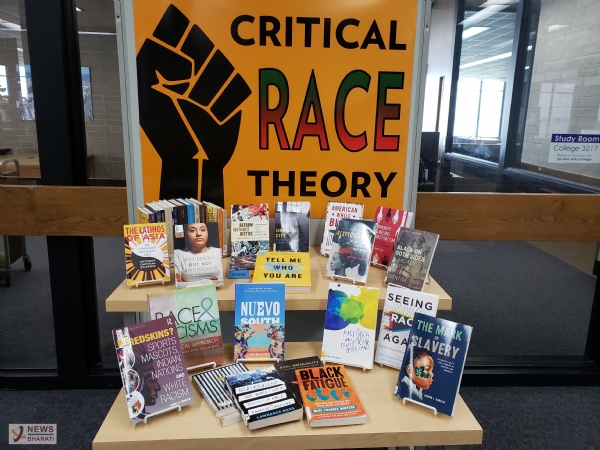Evolution of Critical Theory – Intersectionality| Wokeism #5
In the Indian context, Rajamani Savitha of the University of Massachusetts, Boston, wrote the Critical Caste Theory (CCT). It is based on the above-mentioned Critical Race Theory. According to CCT, all the systems are inherently casteist. CCT switches Whites with Brahmins. The Brahmins are to be blamed for everything.
Total Views |
The Critical Race Theory (CRT) says that all the systems in the U.S. are inherently racist. That is to say that the Whites in the U.S. enjoy privilege in almost everything from education, and laws (civil and criminal including the Constitution, the highest statute of the nation) to literature, arts, media, corporates, etc. meaning that every aspect and system of the American life promote racism. This theory which is said to have originated in the 1970s through Derrick Bell Jr. the first tenured Afro-American professor at the Harvard Law School became famous during the Black Lives Matter (BLM) movement and protests in the year 2020 whose founders admitted themselves to be ‘trained Marxists’.

In the Indian context, Rajamani Savitha of the University of Massachusetts, Boston, wrote the Critical Caste Theory (CCT). It is based on the above-mentioned Critical Race Theory. According to CCT, all the systems are inherently casteist. CCT switches Whites with Brahmins. The Brahmins are to be blamed for everything.
Also Read: Why Wokeism is indeed Neo-Marxism #3
Intersectionality is an add-on to the concept of Critical Race Theory. It says that a person with multiple identities is oppressed by unique issues. For example, a Black Woman is more oppressed than Black men because organizations for Blacks concentrate more on black men. The oppression/problems of black women are not adequately addressed. The intersection of two identities in the above example of intersectionality is Woman (gender) plus Black (race). When jobs were mobilized for the Blacks, they went mainly to the men. Also, when jobs were mobilized for women, they mainly went to White Women. Intersectionality says that Black Women have neither benefited from Black movements, nor from Feminism. Hence, black women are a separate and distinct category of the oppressed. Therefore a Black Woman is more oppressed than Blacks and Women. This concept is said to have been introduced in the 1980s by Kimberle Crenshaw, a professor at Columbia Law School. Intersectionality creates multiple identity/victim groups each facing unique sets of oppression. The primary category is race and/or gender, which is combined with other identities to create numerous identities. Multiple identities are subsets of the large set of race/gender. Classical Marxism made sure that there were only two categories, oppressor and oppressed (haves and haves not) because multiple small groups could end up fighting amongst themselves thereby affecting the entire Marxist movement. Intersectionality creates multiple minority groups. For example, nowadays, being just a feminist is not enough. You need to choose your group viz. liberal feminist, neo-liberal feminist, Marxist feminist, socialist feminist, lesbian feminist, Islamic feminist, Christian feminist, etc. With the use of intersectionality, you can combine and define any intersectional groups claiming to be victims. These minority groups are often seen attacking each other.
Intersectionality has opened doors for the mixing and matching of identities to claim separate treatment. One can combine religion with race/gender, caste with race/gender, and body shape with race/gender and come out as a minority group of victims. Academic fields now also include Critical Caste Studies, Critical Sexuality Studies, Critical Fat Studies, etc. The political goal of Intersectionality can be said to be – to bundle all such oppressed categories to overthrow its concept of oppression by the elite/privileged. It can be very well said that Intersectionality has the base of Marxism and the Critical Race Theory.
Which intersectional identity do you wish to be in?


